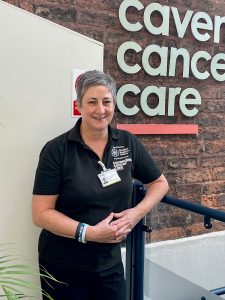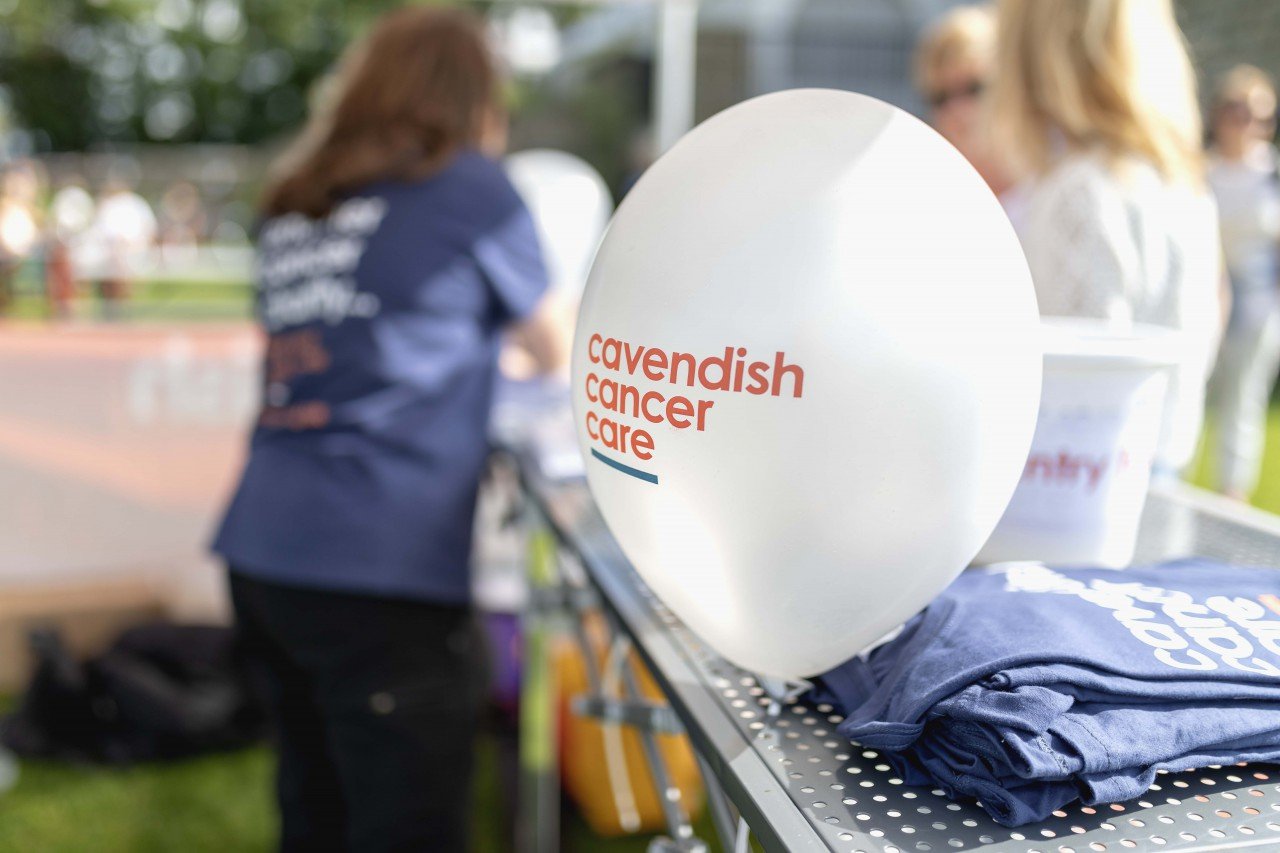Meet the Therapist blog: Helena Hadley
September 24, 2024
Hi Helena! Can you tell us a little bit about what you do at Cavendish Cancer Care and how you got into massaging people’s feet??!
Yes, sure. I’ve been at Cavendish for five years and I’m a therapist offering reiki, reflexology, aromatherapy and massage. I’ve been a qualified therapist for 20 years but before that I was a radio engineer at BT.
That’s quite a career change! How did that come about?
I suffered with post natal depression after my first baby and I found that complementary therapies helped with my symptoms, which triggered my interest. After my second baby I decided not to go back to BT and retrain as a therapist instead. One of my colleagues at BT (Charlie Weston) had already retrained in therapy and he spoke highly of the work being done at Cavendish Cancer Care so I knew a little about the charity. After training, I worked at various clinics and in private practice and then eventually ended up here!
Do you need certain qualifications to practice complementary therapies?
Yes, certainly at Cavendish all the therapists are required to be fully qualified. My initial qualification was a BTEC Level 3 in Complementary Therapies but since then I’ve also completed lots of other advanced training too. Therapists should also be registered with a professional body, which also means you can get insurance and training. I’m with the Federation of Holistic Therapists (FHT).
You are very popular with clients for reflexology treatments. Can you tell us briefly what reflexology is?
The belief behind reflexology is that different parts of your feet represent different parts of your body – if those reflexes are stimulated, it can help to clear the energy within that body system. Energy flows better and then the body is better at healing itself when it can. You can do reflexology on the hands or face too, although foot reflexology is the most effective.
How could reflexology help clients who come to Cavendish?
Reflexology is popular with our clients – partly because it’s just so relaxing! However, it can have benefits for people suffering with nausea related to cancer treatments and can also help with swelling after lymph node removal for example. It’s helpful for anxiety, stress relief, digestive problems and pain management. When people might have a lot of other medical appointments that are stressful or painful, this might be the only place where people can relax and offload a bit. Carers also enjoy it too as I think it offers a rare bit of ‘time for yourself’ which is in short supply if you are caring for a poorly person.
What is the best part of being a therapist here at Cavendish Cancer Care?
I just think it’s such a rewarding place to work and I enjoy being able to help people who maybe feel there isn’t much out there for them. The clinical aspect of cancer treatment can be stressful but I think treatment at Cavendish can offer a brighter spot for people to take solace in.
How can people try reflexology?
Reflexology is available as a private treatment at many complementary therapy clinics. Just make sure your therapist is qualified and registered, or you can search for a therapist on the FHT website (wwwfht.org.uk). It can help with lots of help issues unrelated to cancer treatment – headaches, menopausal symptoms, joint pain, sciatica and lots more. If you or someone you know is affected by cancer, then you can refer yourselves to Cavendish Cancer Care for an assessment.
Thanks Helena!


